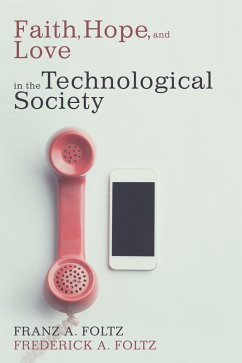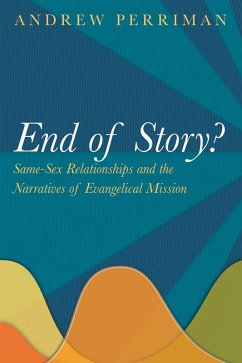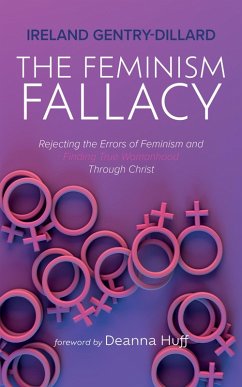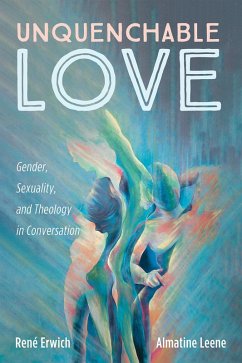
Faith, Hope, and Love in the Technological Society (eBook, ePUB)
Versandkostenfrei!
Sofort per Download lieferbar
13,95 €
inkl. MwSt.
Weitere Ausgaben:

PAYBACK Punkte
7 °P sammeln!
Franz and Frederick Foltz examine how modern technology creates an environment that significantly affects Christianity by reducing the mysteries of faith to manageable techniques. The body of their work analyzes the effects of technology on the theological virtues of faith, hope, and love, the triad that believers have used for a common narrative to understand and express their thoughts and experiences. They begin by looking at how recent developments have brought us into a post-truth era by removing words from their context in nature, time, place, and community. Popular theologies such as the...
Franz and Frederick Foltz examine how modern technology creates an environment that significantly affects Christianity by reducing the mysteries of faith to manageable techniques. The body of their work analyzes the effects of technology on the theological virtues of faith, hope, and love, the triad that believers have used for a common narrative to understand and express their thoughts and experiences. They begin by looking at how recent developments have brought us into a post-truth era by removing words from their context in nature, time, place, and community. Popular theologies such as the power of positive thinking, the laws of creation, the plan for salvation, and the prosperity gospel reflect this change by gearing all for efficiently getting what we want and ignoring tradition. The authors then examine each of the virtues separately, finding that faith has become a risk management tool that depends on confidence in systems rather than personal relationships, hope is defined as the expectation that our present desires shall be granted rather than a vision of the future, and love has become an intimacy that provides escape from the real world and community rather than a self-denying care for them. Finally, the authors take a look at some appropriate responses.
Dieser Download kann aus rechtlichen Gründen nur mit Rechnungsadresse in A, D ausgeliefert werden.













